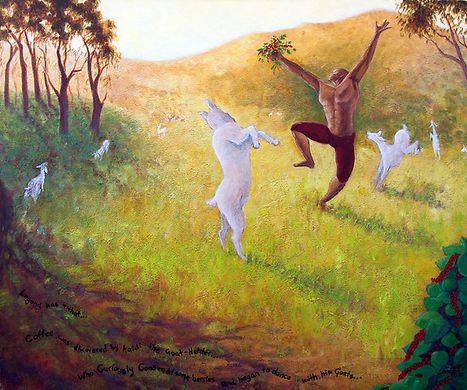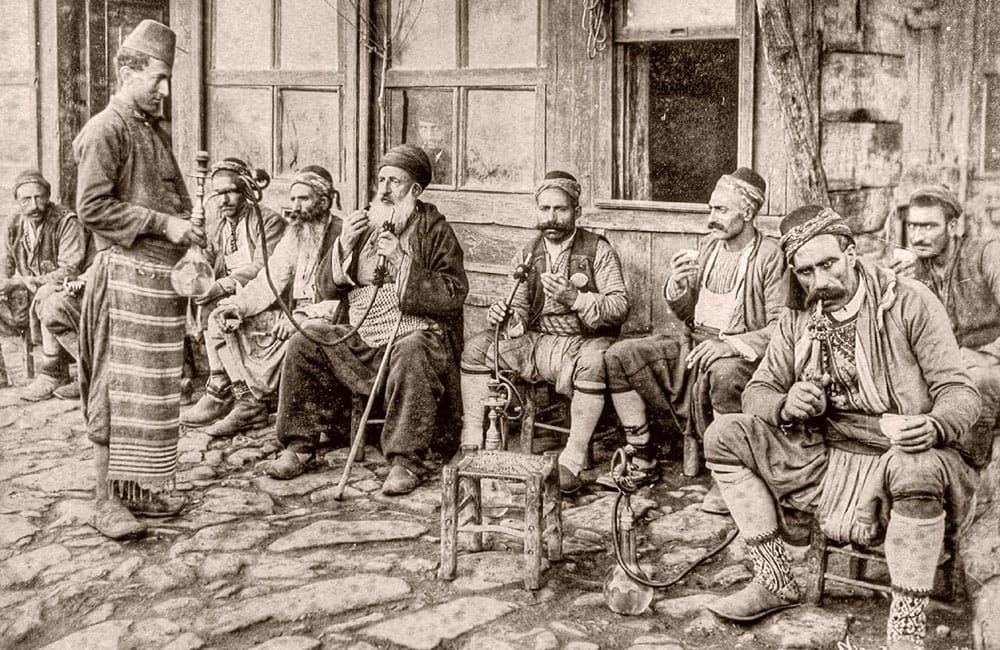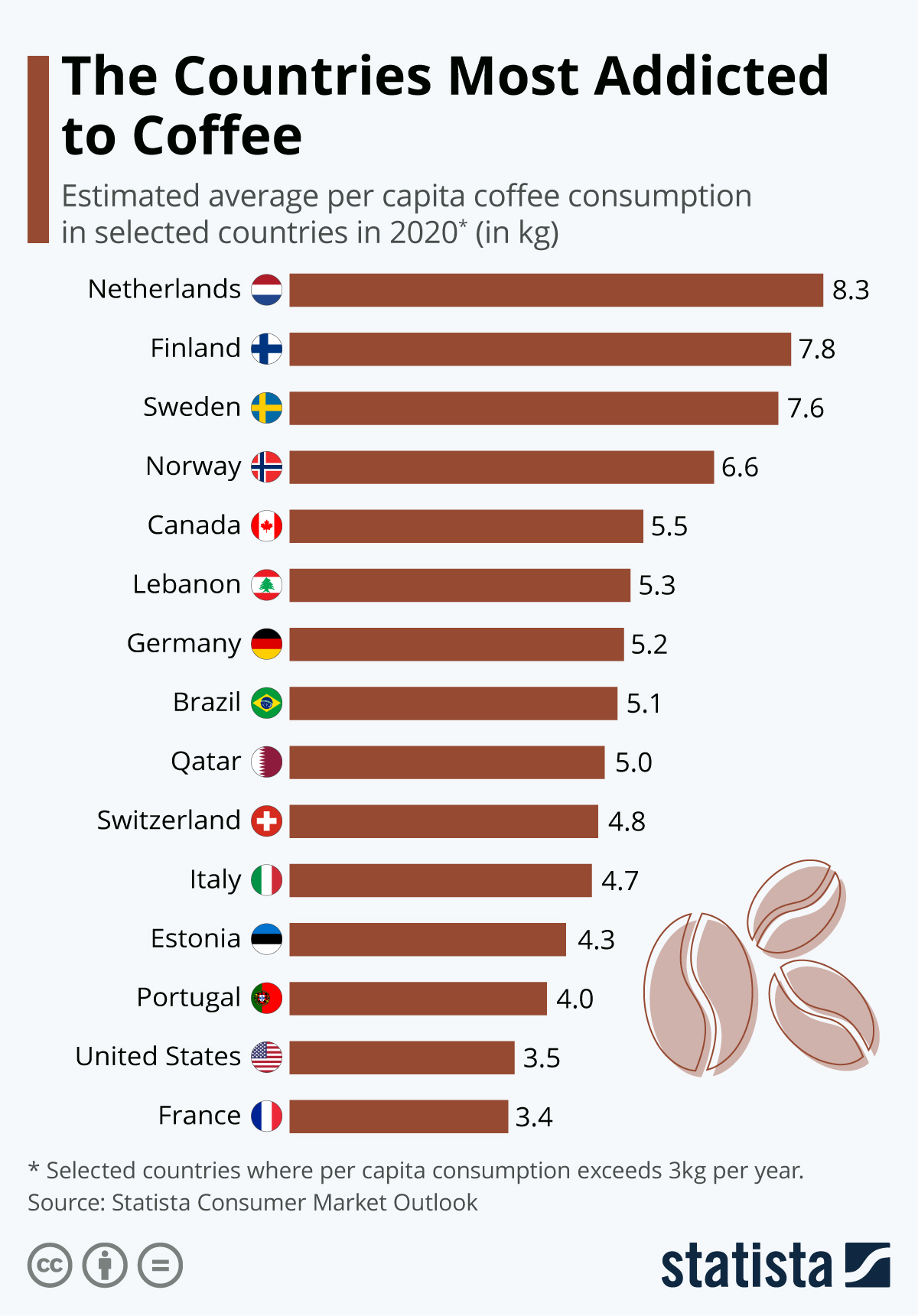The Rich History of Coffee
Coffee is more than a drink; It is a global phenomenon with a rich history dating back centuries. From its mythical discovery in Ethiopia to the coffee shops of Europe and beyond, coffee has played a pivotal role in shaping cultures and societies. In this blog post, we'll delve into the captivating history of coffee, discover fascinating facts, and explore how this beloved beverage continues to evolve today. So grab your favorite cup of coffee and join us on this journey through time.
The Origins of Coffee
The Legend of Kaldi and His Goats The history of coffee begins in the 9th century in the highlands of Ethiopia. According to legend, a goat herder named Kaldi noticed that his goats became unusually energetic after eating the red berries of a certain tree. Curious, Kaldi tried the berries himself and felt a similar burst of energy. He shared his discovery with a local monk, who created a drink with the berries and found that it helped him stay awake during long hours of prayer. This chance discovery marks the beginning of coffee's journey in human culture.
Early Use in Ethiopia In Ethiopia, coffee quickly became an integral part of social and religious life. Initially, grains were ground and mixed with animal fat to create energy balls, which were consumed during long journeys. Over time, the practice of preparing the grains into a drink spread, becoming a central aspect of Ethiopian culture and hospitality.
Did you know? The first coffee beans were not drunk, but chewed. Ancient African tribes mixed coffee berries with fat to create energy balls, providing sustenance during long journeys.

The Journey of Coffee across the Continents
Expansion to the Arab World From Ethiopia, coffee reached Yemen, where it was grown and marketed in the 15th century. The Yemeni port city of Mocha became a major coffee trading center, and the drink quickly spread to Persia, Egypt, and the Ottoman Empire. Coffee's stimulating effects made it popular among Sufi monks, who used it to stay awake during nighttime devotions and meditations.
The Role of Sufi Monks Sufi monks played a crucial role in the spread of coffee throughout the Islamic world. They introduced coffee into religious centers and communities, making it a staple of daily rituals and gatherings. Coffee shops, known as "qahveh khaneh," began to appear in cities across the Middle East, becoming centers of social interaction and intellectual exchange.
Introduction to Europe Coffee came to Europe in the early 17th century through Venetian merchants who traded with the Ottoman Empire. Initially, coffee was met with suspicion and sometimes condemned as the "bitter invention of Satan." However, it gained acceptance after Pope Clement VIII tried it and declared it a Christian drink, encouraging its spread.
The Rise of the Coffeehouse Coffeehouses, or "penny colleges," became popular throughout Europe in the 17th century. These establishments offered coffee for a penny and provided a space for intellectuals, artists, and businessmen to meet and exchange ideas. In England, France, and other parts of Europe, coffeehouses became epicenters of cultural and political life, influencing the Enlightenment and the rise of modern business practices.
Coffee in the New World
Arrival in the Americas Coffee was introduced to the Americas at the beginning of the 18th century. French colonists brought coffee plants to the Caribbean, while the Dutch planted coffee in their colonies in South America. The warm climate and fertile soil of the Caribbean and South America proved ideal for growing coffee, leading to the establishment of large plantations.
The Role of Colonial Plantations Coffee plantations in the Americas were often worked by enslaved Africans and indigenous peoples, a dark chapter in coffee history. Despite this, the Americas became a major coffee-producing region, with Brazil emerging as the world's largest coffee producer in the mid-19th century. The large scale of coffee production in the Americas contributed to the beverage's global expansion and popularity.
Coffee and the Industrial Revolution The Industrial Revolution further boosted the popularity of coffee. As factories and offices sprang up, coffee became the drink of choice for workers who needed a stimulant to endure long hours of work. Coffee's role in increasing productivity and social interaction cemented its place in modern society.

Modern Coffee Culture
The Rise of Coffee Chains The 20th century saw the rise of coffee chains, with companies like Starbucks leading the way. Founded in 1971 in Seattle, Starbucks revolutionized the coffee industry by popularizing espresso-based drinks and creating a "third place" between home and work where people could relax and socialize. This model expanded globally, making coffee culture a ubiquitous part of urban life.
Specialty Coffee and the Third Wave Movement In the late 20th and early 21st centuries, the third wave coffee movement emerged, focusing on high-quality, sustainably sourced coffee. This movement emphasizes the importance of knowing the origin of coffee beans, the conditions in which they are grown, and the methods used to process and prepare them. Specialty coffee shops prioritize direct trade relationships with coffee farmers and often roast their beans in-house to ensure optimal flavor.
Current Trends in Coffee Consumption Today's coffee culture is characterized by a variety of trends, from cold brew and nitro coffee to artisanal coffee and sustainable practices. Consumers are increasingly interested in the story behind their coffee, leading to a greater focus on transparency, ethical sourcing and environmental impact. Innovative brewing methods such as pour-over and Aeropress are also gaining popularity among coffee aficionados.
Interesting Facts and Curiosities
Section "Did you know?"
- Coffee is the second most traded product in the world, after oil.
- The word "coffee" comes from the Arabic word "qahwa," which originally referred to wine.
- In 1675, the king of England banned coffee houses, calling them hotbeds of political dissent.
- Beethoven was known to be a coffee lover, counting exactly 60 beans per cup.

From its mythical origins in Ethiopia to its current status as a global cultural icon, coffee has a rich and fascinating history. As we continue to explore new ways to enjoy this beloved beverage, it's clear that coffee will continue to be an integral part of our lives for many years to come. Whether you're a casual drinker or a dedicated enthusiast, there's always something new to discover in the world of coffee. So why not try one of our premium blends and experience the rich history and flavor of coffee for yourself?

